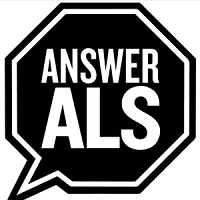Three major academic medical centers are combining their big data analytics forces to tackle Amyotrophic Lateral Sclerosis (ALS), a common yet poorly understood degenerative neuromuscular condition.

Johns Hopkins University’s Robert Packard Center for ALS Research, Cedars-Sinai Medical Center’s Regenerative Medicine Institute and the Massachusetts General Hospital Neurological Clinical Research Institute will coordinate research efforts to uncover the root causes of ALS, utilizing advances in genomics, precision medicine, machine learning, and pharmaceutical developments to work towards a cure for the fatal disease.
The project, called Answer ALS, represents “an unprecedented approach to understanding and defeating disease,” said Dr. Jeffrey Rothstein, Director of the Brain Science Institute and the Robert Packard Center for ALS Research at Johns Hopkins University and the Executive Director of Answer ALS.
While ALS research has drawn massive international attention in the past few years after social media prompted the uptake of the Ice Bucket Challenge as a way to bring funding to non-profit research organizations, clinicians currently have few treatment options for patients diagnosed with the disease. The Answer ALS collaboration hopes to change that.
- At-home risk score can reduce appointments for strep throat
- Understanding the Basics of the Patient-Centered Medical Home
- Alexa, Siri NLP Skills Not Ready for Reliable Medical Conversations
“This project will bring together world-renowned ALS research scientists to work against an aggressive timeline for understanding, treating and eventually finding a cure for this disease,” Rothstein continued. “The substantial initial funding from these generous supporters is a critical step forward in our effort to provide hope to those affected by ALS.”
Researchers will develop a centralized foundation of clinical and genetic data that will underpin cross-organizational research targeted at discovering the origins and pathways of the disease. The organizations hope to more clearly define the condition’s subtypes and methods of development as a first step towards developing new clinical trials that may produce personalized treatments.
“We are combining big data, comprehensive biological analytics, technology and science in a way that would not have been possible a decade ago,” said Clive Svendsen, PhD, Director of the Regenerative Medicine Institute at Cedars-Sinai Medical Center and Co-Director of Answer ALS. “What is so exciting and important is that all of this data will be made publicly available with free, open access to the ALS research community, so that we can make faster and greater strides together to find a cure for this disease.”
“By leveraging clinical and sample data collection systems built by the Northeast ALS Consortium (NEALS) with the support of the ALS Association and ALS Finding a Cure Foundation, enrollment of participants and sharing of data and samples will be accelerated,” added Merit Cudkowicz, MD, Chief of Neurology and Co-Director of the Neurological Clinical Research Institute at Massachusetts General Hospital and Co-Director of Answer ALS.
The project will collect longitudinal clinical data on at least 1000 ALS patients, and will also examine brain cells of affected patients using advanced genomics and robotic imaging analytics. The coalition has already raised $20 million in funding to support its mission, backed by stakeholders including the National Football League, PGA TOUR, and ALS Finding a Cure.
“To accelerate development of treatments for people with ALS, we brought together a remarkable team of scientists, a true powerhouse, to answer one of the hardest and most important questions in the biology of ALS,” said Peter Foss, President of the ALS Finding a Cure Foundation, and General Manager of the GE/NFL TBI research project.
“We support open, collaborative science that tackles fundamental therapy-driven questions and includes real-time community sharing of data. This is the best approach to accelerate finding a cure for all people with ALS.”
